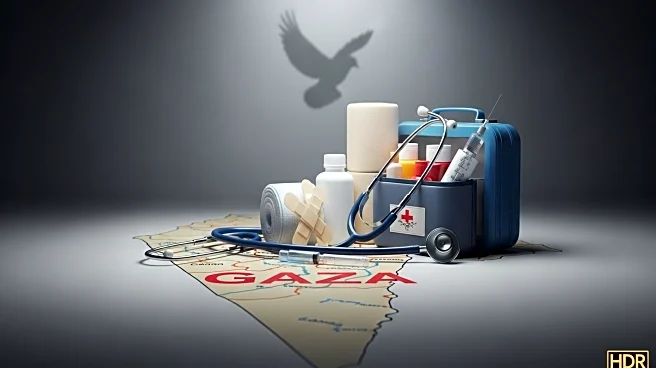What's Happening?
Dr. James Smith, an emergency physician who participated in the Global Sumud Flotilla, has emphasized the critical need for humanitarian aid in Gaza, despite a recent peace deal. The situation in Gaza remains dire, with essential supplies and medical assistance urgently required to support the population. The peace agreement has not alleviated the humanitarian crisis, and access to aid continues to be a significant challenge. Dr. Smith's involvement with the flotilla underscores the ongoing efforts by international groups to deliver aid and support to the region.
Why It's Important?
The call for humanitarian aid in Gaza highlights the persistent challenges faced by the region, even in the wake of diplomatic agreements. The inability to secure adequate aid can exacerbate health crises, increase mortality rates, and prolong suffering among civilians. This situation has broader implications for international relations and humanitarian policies, as it underscores the need for effective mechanisms to ensure aid delivery in conflict zones. Stakeholders, including governments and NGOs, must address these barriers to prevent further deterioration of living conditions in Gaza.
What's Next?
Efforts to improve humanitarian access in Gaza are likely to continue, with international organizations and governments potentially increasing pressure on parties involved in the peace deal to facilitate aid delivery. Monitoring the situation will be crucial to ensure that commitments made in the peace agreement translate into tangible improvements for the people of Gaza. Future diplomatic negotiations may focus on establishing more robust frameworks for humanitarian aid access.
Beyond the Headlines
The ongoing humanitarian crisis in Gaza raises ethical questions about the responsibilities of international communities in conflict resolution and aid distribution. It also highlights the need for sustainable solutions that address the root causes of such crises, including political instability and economic deprivation.










